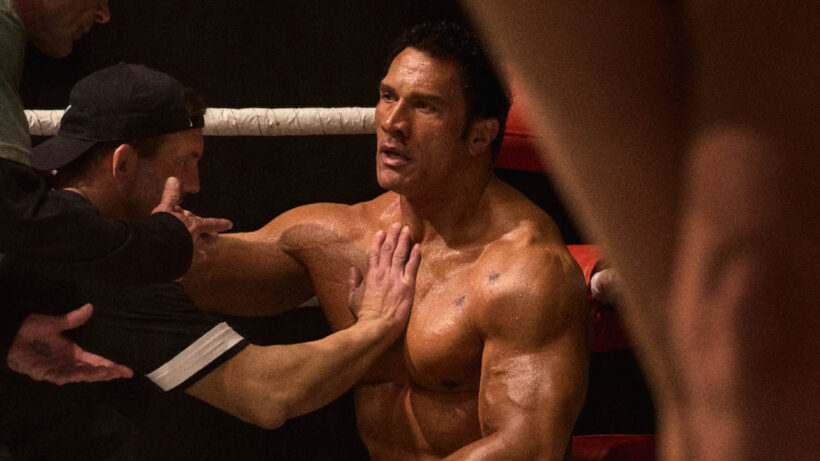In recent years, cinema has seen a resurgence of powerful sports dramas, not merely celebrating athletic achievement but delving deep into the struggles, vulnerabilities, and humanity behind the legends. What makes these films stand out is not just the compelling true stories, but the way actors completely transform themselves to inhabit the lives of athletes who pushed their bodies and spirits to the limit. From physical metamorphosis to emotional honesty, these performances show how cinema can bring us closer to the triumphs and tragedies of extraordinary individuals.
The Smashing Machine (2025)
Directed by Benny Safdie, The Smashing Machine stars Dwayne “The Rock” Johnson as MMA fighter Mark Kerr. Known for his action-hero roles, Johnson sheds his usual charisma to portray Kerr with raw fragility, capturing both the ferocity of the cage and the torment of addiction and personal struggle. Emily Blunt delivers a grounded counterpoint as Kerr’s partner, Dawn Staples, highlighting the human cost of fame and obsession. The result is a gritty, emotionally charged film that reframes Johnson’s career and elevates the story of a man both celebrated and broken by his sport.
Unstoppable (2024)
Unstoppable tells the inspiring story of Anthony Robles, the American wrestler who won a national championship despite being born with only one leg. Jharrel Jerome takes on the role with remarkable dedication, balancing Robles’ physical determination with the emotional complexity of navigating life as an athlete defying expectations. Unlike the darker tone of The Smashing Machine, Unstoppable is a story of resilience and hope, a reminder of how sport can redefine what is possible when strength of character meets relentless perseverance.
The Iron Claw (2023)
Sean Durkin’s The Iron Claw brings to life the tragic saga of the Von Erich wrestling dynasty, with Zac Efron at its center as Kevin Von Erich. Physically transformed and emotionally stripped down, Efron captures both the pride and the sorrow of a family defined by glory and haunted by loss. The film blends high-octane wrestling sequences with the quieter devastation of grief, presenting a powerful meditation on the weight of legacy and the fragile balance between success and sacrifice.
The Importance of Telling These Stories
What unites these films is their refusal to reduce athletes to icons of strength alone. Instead, they portray men who were as vulnerable as they were powerful, showing addiction, disability, or grief as integral parts of their journeys. By spotlighting these stories, cinema reminds us that greatness often comes at a profound cost, and that the humanity of these athletes is just as compelling as their victories. These biopics not only honor their subjects but also challenge audiences to reflect on resilience, ambition, and the price of pursuing greatness

